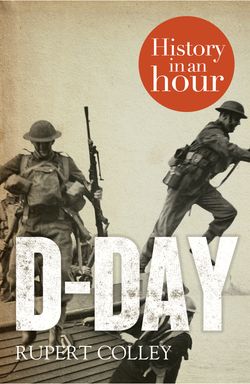Читать книгу D-Day: History in an Hour - Rupert Colley - Страница 7
PLANNING Casablanca Conference
ОглавлениеMeeting in January 1943, Churchill and US president Franklin D. Roosevelt agreed that a cross-Channel invasion was a necessity, and that plans for such a venture should be initiated. But at this stage both the prime minister and the president had alternative priorities: for Churchill, the focus of the war in Europe would be centred on Italy, starting with an invasion of Sicily; while Roosevelt’s main concern was the ongoing war in the Pacific.
Stalin, although invited, was not present at Casablanca – preoccupied by the ongoing battle raging round Stalingrad. Another Allied leader conspicuous by his absence was the head of the Free French forces, General Charles de Gaulle.
De Gaulle had been living in exile in London since the fall of France in June 1940. Philippe Pétain’s Vichy government, collaborating with the German invaders, had, in absentia, found de Gaulle guilty of treason and sentenced him to death. De Gaulle’s relationship with his allies was far from cordial. Roosevelt, in particular, disliked the Frenchman, refusing to acknowledge the self-proclaimed leader in any way that might enhance de Gaulle’s political standing. The Allies were not about to liberate France merely to install de Gaulle into power. Instead, Roosevelt insisted, following liberation there would be a provisional military government in place until elections could be held. Roosevelt and Churchill pointedly kept de Gaulle in the dark regarding the invasion plans and, indeed, only informed him two days before the event.
